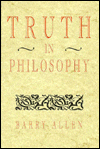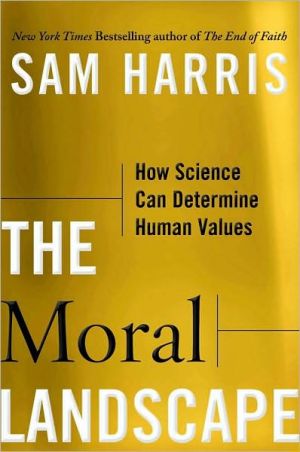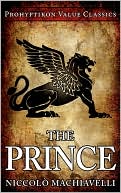Truth in Philosophy
The goal of philosophers is truth, but for a century or more they have been bothered by Nietzsche's question, "What is the good of truth?" Barry Allen shows what truth has come to mean in the philosophical tradition, what is wrong with many of the ways of conceiving truth, and why philosophers refuse to confront squarely the question of the value of truth—why it is always taken to be an unquestioned concept. What is distinctive about Allen's book is his historical approach. Surveying Western...
Search in google:
The goal of philosophers is truth, but for a century or more they have been bothered by Nietzsche's question, "What is the good of truth?" Barry Allen shows what truth has come to mean in the philosophical tradition, what is wrong with many of the ways of conceiving truth, and why philosophers refuse to confront squarely the question of the value of truth. Library Journal Allen (philosophy, Univ. of California, Berkeley) sharply attacks the view of truth held by most analytic philosophers. Truth is not correspondence with reality, he argues; statements pass for true based on practical considerations. To support this radical position, he offers a historical study of several philosophers, including a discussion of Greek and Christian ``onto-logic'' and a description of Nietzsche's challenge to the value of truth. Michel Foucault's studies support Allen's defiance of orthodoxy by showing in concrete terms the interests that claims to truth serve. Allen's clear account of thinkers whom most analytic philosophers neglect is the book's most valuable feature. His attempt to escape self-refutation seems unsuccessful, but the book deserves careful study. For philosophy collections.-- David Gordon, Bowling Green State Univ., Ohio
AbbreviationsPrologue1Pt. 1Historical Introduction1Classical Philosophy of Truth92Modern Truth29Pt. 2Nietzsche's Question3Nietzsche, or A Scandal of the Truth414William James, or Pragmatism56Pt. 3From Nature to History, From Being to Politics5Heidegger, or The Truth of Being736Derrida, or Difference Unlimited967Wittgenstein, or The Aufhebung of Logic1138Foucault, or Truth in Politics149Epilogue177Notes185Acknowledgments225Index227
\ Library JournalAllen (philosophy, Univ. of California, Berkeley) sharply attacks the view of truth held by most analytic philosophers. Truth is not correspondence with reality, he argues; statements pass for true based on practical considerations. To support this radical position, he offers a historical study of several philosophers, including a discussion of Greek and Christian ``onto-logic'' and a description of Nietzsche's challenge to the value of truth. Michel Foucault's studies support Allen's defiance of orthodoxy by showing in concrete terms the interests that claims to truth serve. Allen's clear account of thinkers whom most analytic philosophers neglect is the book's most valuable feature. His attempt to escape self-refutation seems unsuccessful, but the book deserves careful study. For philosophy collections.-- David Gordon, Bowling Green State Univ., Ohio\ \ \ \ \ BooknewsSurveying western thought from the pre-Socratics to the postmodernists, identifies and challenges two persistent strands of thought: truth requires a realist metaphysics; and truth is good. The pivot of Allen's (philosophy, McMaster U.) treatment is Nietzsche's questioning of the value of truth in philosophy. Written in nonspecialist language. Annotation c. Book News, Inc., Portland, OR (booknews.com)\ \








